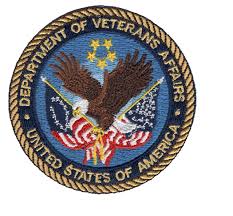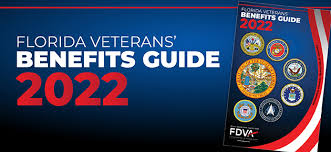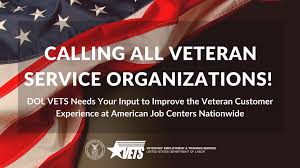The Department of Veterans Affairs (VA) is a government agency that provides a wide range of services and benefits to veterans, active duty military personnel, and their families. The VA was established in 1930, and its mission is to serve those who have served our country.
One of the primary functions of the VA is to provide healthcare services to veterans. The VA operates a network of hospitals, clinics, and other medical facilities across the country. These facilities offer a variety of medical services, including primary care, mental health care, and specialized care for conditions such as traumatic brain injury and post-traumatic stress disorder (PTSD).
In addition to healthcare services, the VA also provides disability compensation to veterans who have been injured or become ill as a result of their military service. This compensation can help veterans cover the costs of medical treatment and other expenses related to their disabilities.
The VA also offers education and training programs for veterans who want to further their education or learn new skills. These programs include the Post-9/11 GI Bill, which provides financial assistance for tuition, housing, and other education-related expenses.
Another important function of the VA is to provide home loan guarantees to eligible veterans. These guarantees can help veterans obtain affordable home financing with favorable terms.
The VA also operates national cemeteries where eligible veterans can be buried with honors. These cemeteries provide a final resting place for those who have served our country.
Despite its many important functions, the VA has faced criticism over the years for issues such as long wait times for medical appointments and inadequate staffing at some facilities. However, the agency has taken steps in recent years to improve its services and address these issues.
Overall, the Department of Veterans Affairs plays a crucial role in supporting our nation’s veterans and ensuring that they receive the care and support they need after serving our country.
6 Essential Tips for Veterans: Navigating the Department of Veterans Affairs
- Learn about the benefits you are eligible for as a veteran. The Department of Veterans Affairs (VA) offers a wide range of services, including health care, education, and disability compensation.
- Take advantage of VA resources such as the VA health care system and the GI Bill to help you transition from military service to civilian life.
- Stay informed about changes in VA regulations or policies that may affect your benefits or eligibility requirements.
- Make sure to keep your contact information up-to-date with the VA so they can reach you if needed regarding your benefits or services provided by them.
- If you have questions or concerns about any aspect of your service or benefit, contact the VA directly for assistance and advice on how to resolve them quickly and efficiently.
- Take advantage of online tools such as eBenefits to manage your benefits from home without having to physically visit a local office location..
Learn about the benefits you are eligible for as a veteran. The Department of Veterans Affairs (VA) offers a wide range of services, including health care, education, and disability compensation.
As a veteran, it is important to be aware of the benefits that you are eligible for from the Department of Veterans Affairs (VA). The VA offers a wide range of services that can help veterans with healthcare, education, and disability compensation.
One of the most important benefits offered by the VA is healthcare. The VA operates a network of hospitals and clinics across the country that provide medical care to eligible veterans. This includes primary care, mental health care, and specialized care for conditions such as traumatic brain injury and post-traumatic stress disorder (PTSD).
The VA also offers education and training programs for veterans who want to further their education or learn new skills. These programs include financial assistance for tuition, housing, and other education-related expenses.
In addition to healthcare and education benefits, the VA also provides disability compensation to veterans who have been injured or become ill as a result of their military service. This compensation can help veterans cover the costs of medical treatment and other expenses related to their disabilities.
To take advantage of these benefits, it is important to learn about what you are eligible for as a veteran. You can do this by contacting your local VA office or visiting the VA website. By taking advantage of these services, you can get the support you need as a veteran and ensure that you receive the care and assistance you deserve.
Take advantage of VA resources such as the VA health care system and the GI Bill to help you transition from military service to civilian life.
Transitioning from military service to civilian life can be a challenging experience for many veterans. Fortunately, the Department of Veterans Affairs (VA) offers a variety of resources to help ease this transition. Two key resources that veterans should take advantage of are the VA health care system and the GI Bill.
The VA health care system provides comprehensive medical services to eligible veterans, including primary care, mental health care, and specialized care for conditions such as traumatic brain injury and post-traumatic stress disorder (PTSD). By utilizing these services, veterans can receive the medical attention they need to maintain their physical and mental well-being as they transition to civilian life.
The GI Bill is another valuable resource that can help veterans further their education or learn new skills. This program provides financial assistance for tuition, housing, and other education-related expenses. By taking advantage of the GI Bill, veterans can gain the knowledge and skills they need to succeed in civilian careers.
In addition to these resources, the VA offers a range of other programs and benefits that can help veterans make a successful transition from military service to civilian life. These include disability compensation, home loan guarantees, and vocational rehabilitation and employment services.
By utilizing these resources, veterans can take important steps towards building a successful civilian life after serving our country. If you are a veteran who is transitioning out of military service, be sure to explore all of the resources available through the Department of Veterans Affairs.
Stay informed about changes in VA regulations or policies that may affect your benefits or eligibility requirements.
If you are a veteran or an active duty military personnel who relies on benefits from the Department of Veterans Affairs (VA), it is important to stay informed about any changes in VA regulations or policies that may affect your benefits or eligibility requirements.
The VA regularly updates its policies and regulations, and it is important to keep up-to-date with these changes to ensure that you are receiving all the benefits you are entitled to. For example, changes in eligibility requirements for certain benefits could mean that you are no longer eligible for a benefit you were previously receiving.
One way to stay informed is by regularly checking the VA’s website or signing up for email updates from the VA. The website provides information on changes in policies and regulations, as well as resources for veterans and their families.
Another way to stay informed is by working with a Veterans Service Organization (VSO) or a VA-accredited representative. These organizations can provide guidance on changes in policies and regulations, as well as assist with navigating the VA system and filing claims.
By staying informed about changes in VA regulations or policies, you can ensure that you are receiving all the benefits you are entitled to and avoid any potential issues with your benefits. Remember, staying informed is key to maximizing your benefits and getting the care and support you need after serving our country.
Make sure to keep your contact information up-to-date with the VA so they can reach you if needed regarding your benefits or services provided by them.
If you are a veteran or an active duty military personnel who receives services or benefits from the Department of Veterans Affairs (VA), it is essential to keep your contact information up-to-date. This includes your mailing address, phone number, and email address.
By keeping your contact information current, you can ensure that the VA can reach you if they need to provide important updates about your benefits or services. For example, if there is a change in your eligibility for certain benefits or if there is an issue with your medical appointment, the VA may need to contact you to provide further information.
Updating your contact information with the VA is a simple process. You can do so by logging into your account on the VA website or by contacting the VA directly. It is important to update this information as soon as possible after any changes occur.
In addition to ensuring that the VA can reach you when necessary, keeping your contact information up-to-date can also help prevent any delays in receiving benefits or services. By providing accurate and current information, you can help ensure that you receive the care and support that you need in a timely manner.
Overall, keeping your contact information up-to-date with the Department of Veterans Affairs is an important step in ensuring that you receive the benefits and services that you are entitled to as a veteran or active duty military personnel.
If you have questions or concerns about any aspect of your service or benefit, contact the VA directly for assistance and advice on how to resolve them quickly and efficiently.
If you are a veteran or an active duty military personnel, it is important to know that the Department of Veterans Affairs (VA) is there to help you with any questions or concerns you may have about your service or benefits. Whether you are seeking medical care, disability compensation, education and training, home loan guarantees, or burial benefits, the VA can provide valuable assistance and advice.
If you have questions or concerns about any aspect of your service or benefit, it is recommended that you contact the VA directly for assistance. The VA has a variety of resources available to help veterans navigate the often-complicated process of applying for benefits and accessing services.
By contacting the VA directly, you can get personalized advice on how to resolve any issues quickly and efficiently. The VA has trained professionals who can answer your questions and guide you through the process of applying for benefits or accessing services.
In addition to contacting the VA directly, there are also many online resources available that can help veterans learn more about their benefits and services. The VA website provides detailed information on all aspects of veterans’ benefits and services, including eligibility requirements, application procedures, and frequently asked questions.
In summary, if you have questions or concerns about your service or benefit as a veteran or active duty military personnel, don’t hesitate to contact the Department of Veterans Affairs directly for assistance. With their guidance and support, you can ensure that you receive the care and support that you deserve after serving our country.
Take advantage of online tools such as eBenefits to manage your benefits from home without having to physically visit a local office location..
The Department of Veterans Affairs (VA) offers a wide range of benefits and services to veterans, active duty military personnel, and their families. However, managing those benefits can sometimes be a challenge, especially if you live far away from a local VA office location. Fortunately, the VA offers online tools such as eBenefits that can help you manage your benefits from the comfort of your own home.
eBenefits is a web portal that allows veterans and their families to access and manage their VA benefits online. With eBenefits, you can apply for benefits, check the status of your claims, view your payment history, and update your personal information. You can also use eBenefits to download important documents such as your DD-214 form.
One of the biggest advantages of using eBenefits is that it allows you to manage your benefits without having to physically visit a local VA office location. This can be especially helpful if you live in a rural area or if you have mobility issues that make it difficult for you to travel.
To use eBenefits, all you need is an internet connection and a computer or mobile device. You can access eBenefits through the VA website or by downloading the eBenefits app on your smartphone or tablet.
Overall, taking advantage of online tools such as eBenefits can make managing your VA benefits much easier and more convenient. Whether you need to apply for benefits or check the status of your claims, eBenefits is a valuable resource that can help you get the support you need without having to leave home.




